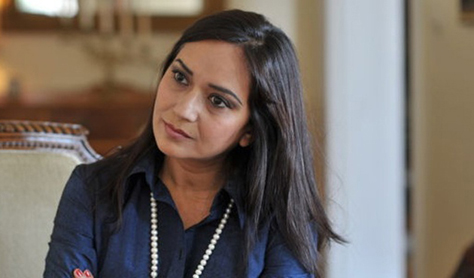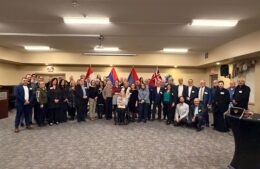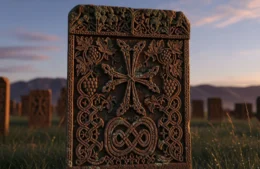Amberin Zaman: sincere apology and compensation are long overdue
- (0)
Amberin Zaman: sincere apology and compensation are long overdue –
By Amberin Zaman
Council on Foreign Relations
This article was published on April 22, 2015
Amberin Zaman is an Istanbul-based turkish writer who has covered Turkey for The Washington Post, The Los Angeles Times, The Daily Telegraph and the Voice of America. A frequent commentator on Turkish television, she is currently Turkey correspondent for The Economist, a position she has retained since 1999.
On April 24, millions of Armenians around the world will commemorate the centenary of the mass destruction of their ancestors by the Ottoman Turks.
Some will come to my country, Turkey, for the first time to pray for the souls of their loved ones who perished during what most historians call the first genocide of the twentieth century. It will be a day of reflection for me as well, and not just because I am Turkish and have many Armenian friends. It is also because my great grandfather on my maternal side may have played a part in covering up this horrible crime.
Mehmet Emin Kalmuk was the son of Muslim Tatars who fled Crimea during the 1853–56 Russo-Ottoman war. He became the director of the postal and telegraph authority during the last days of the Ottoman Empire. I grew up hearing stories of his valor. He had “burned all the telegrams” before British warships anchored off the coast of Istanbul, marking the post–World War I Allied occupation of the city.
Did the messages that my great grandfather destroyed contain the deportation orders for over a million Armenians who were sent on a death march to the Syrian desert?
I still don’t know. Historians have documented that much evidence was destroyed in the aftermath of 1915.
What I do know is this: A terrible sin was committed by our forebears. It went unpunished. Further crimes ensued, albeit on a lesser scale: Thousands of Alevi Kurds were massacred in the province of Dersim in 1938, there were pogroms against Greeks in the 1950s, and the Turkish army launched a scorched-earth campaign against Kurdish rebels in the 1990s, during which thousands were tortured and killed. These acts went unpunished too. And so the cycle continues, not because Turks are inherently evil, but because of a deeply ingrained culture of impunity, which we dress up as pride.
The Islamist government that has been in power since 2002 has gone further than any of its predecessors in addressing some of these horrors. Beginning last year, it expressed condolences to the Armenians on the anniversary of the killings. Yet there is a strong whiff of political expediency about its magnanimity. No matter how we label the crimes, a formal and sincere apology and, where feasible, compensation are long overdue.



















